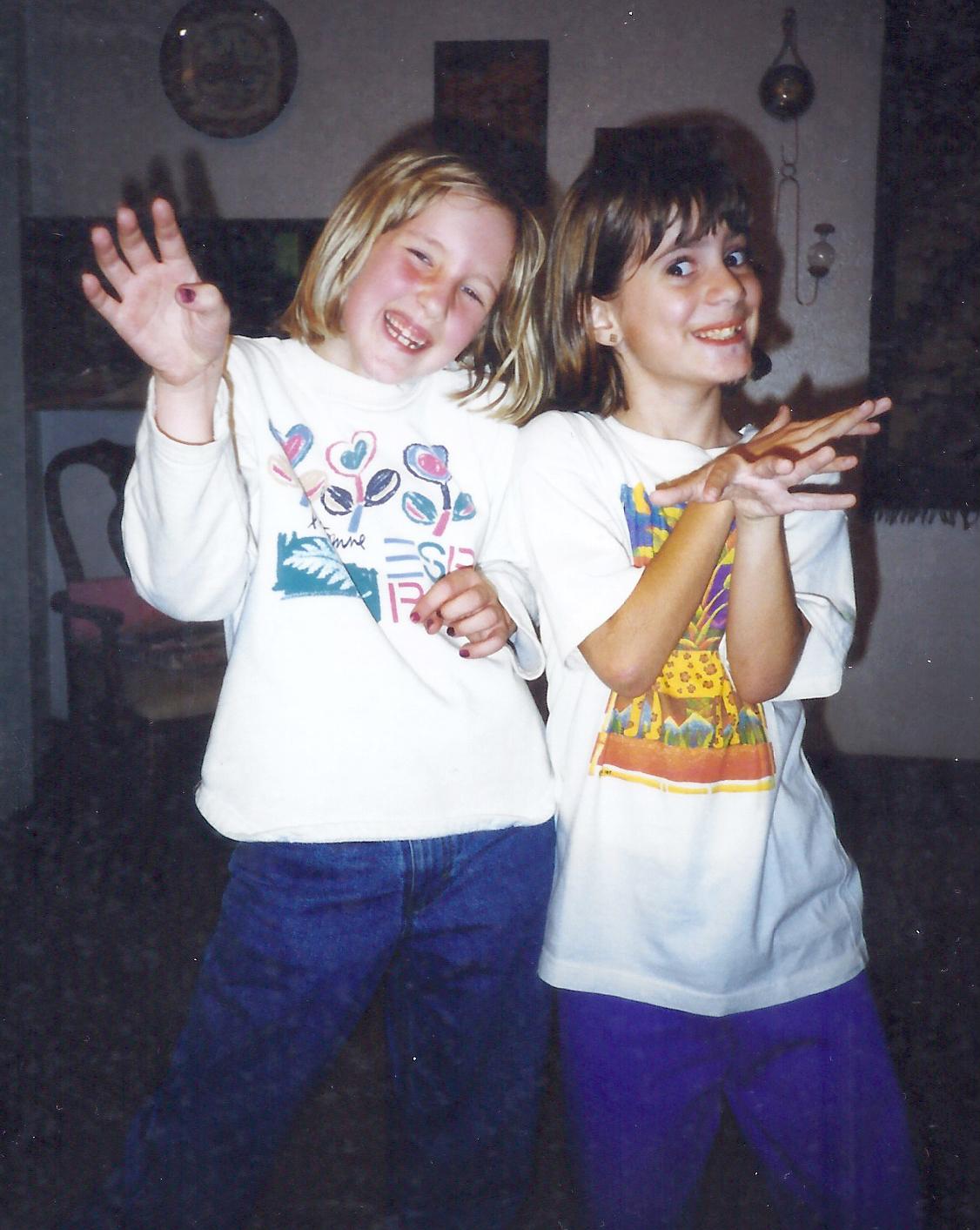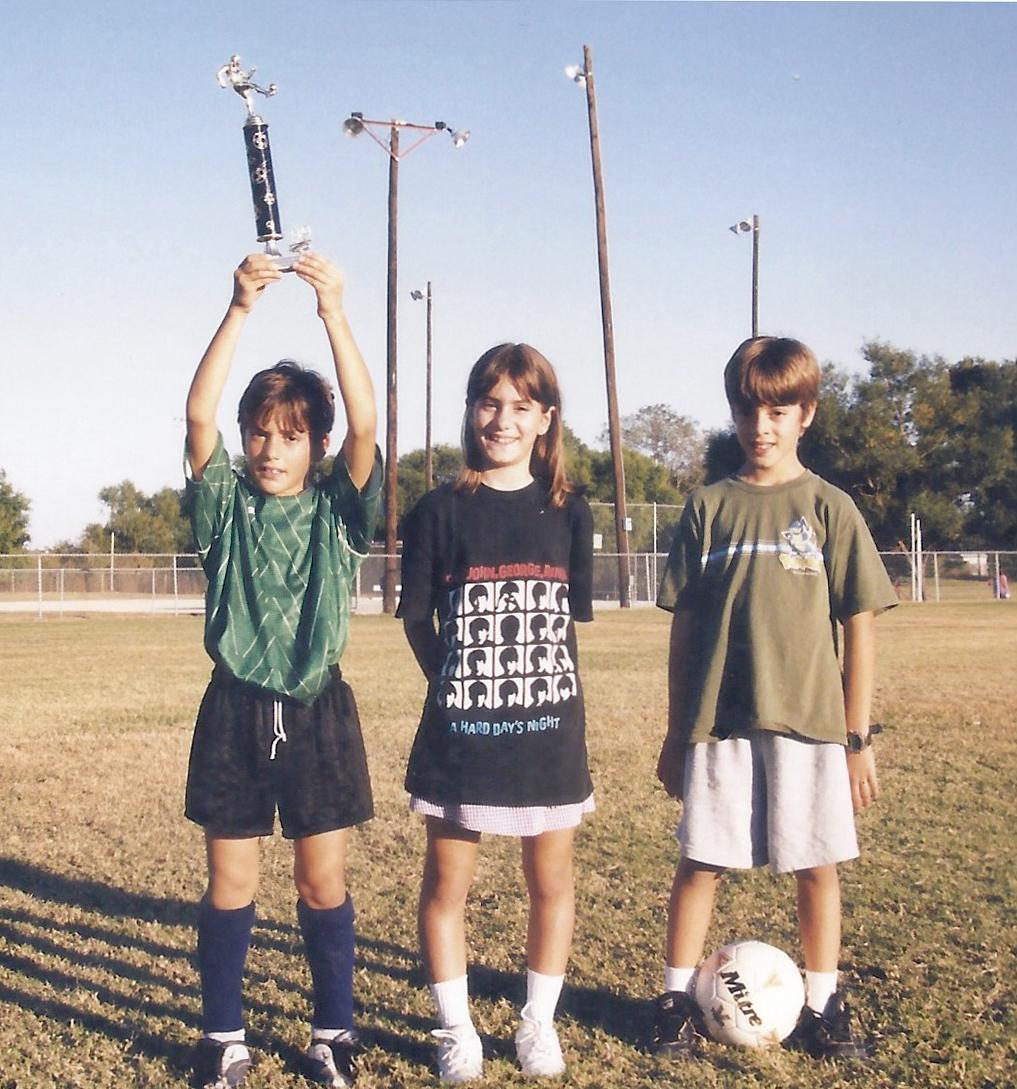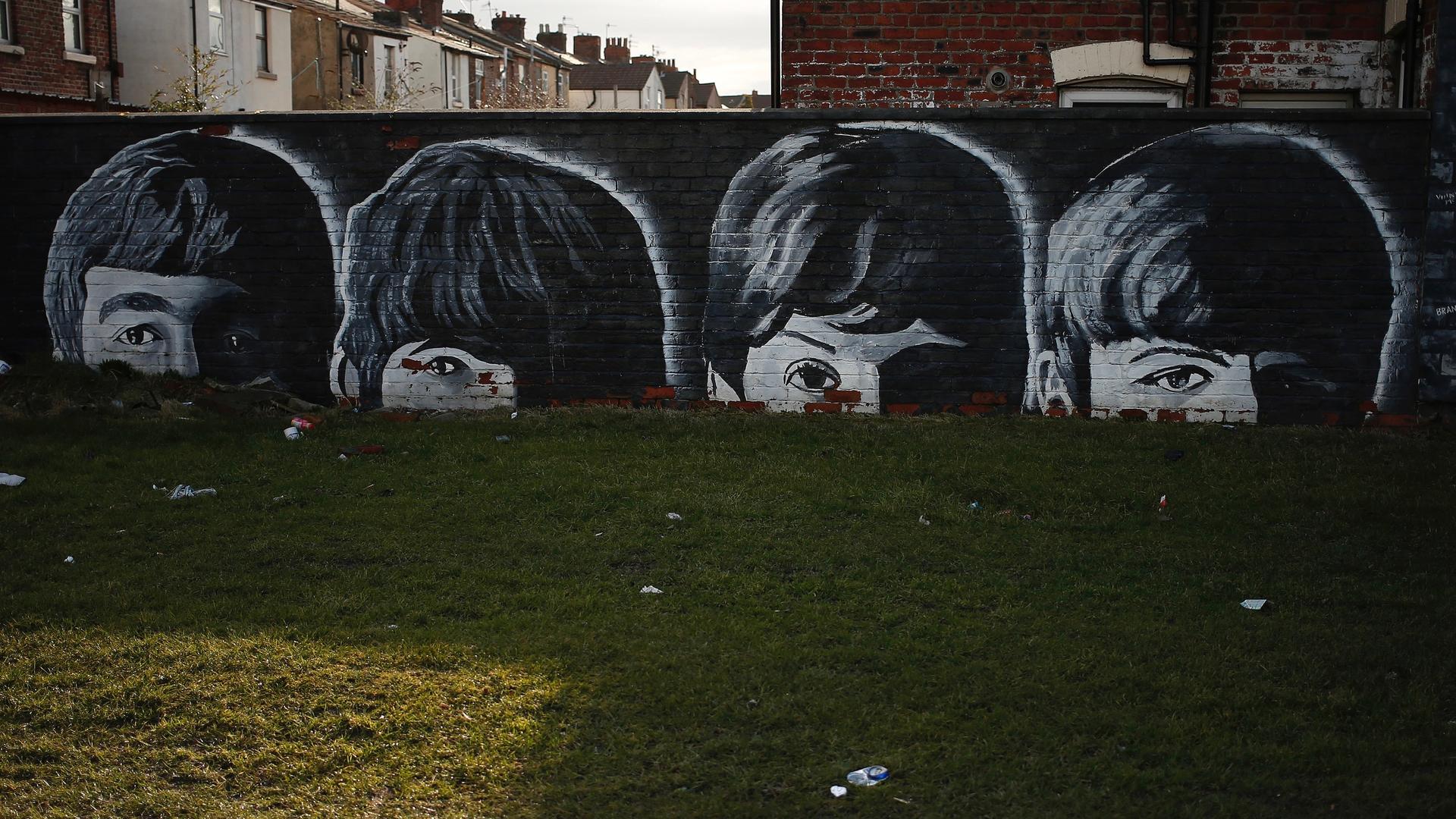A mural of the Beatles is seen painted on the end of a row of terraced houses in Liverpool, northern England, Feb. 18, 2015. Fifty years since the group performed for the last time in their home city, the group’s presence is still felt. Fans of the Fab Four from across the globe add around $105 million to the local economy each year, according to industry organisation UK Music.
When I was 9 years old, just months after moving from Argentina to the US, I created my very own Beatles “radio show” with the only friend I had at the time. Her name was Valerie Jeannin — she lived down the street from me and she, too, loved the Beatles.
This was 1998 — years before podcasts were a thing and decades after the Beatles had broken up. I didn’t speak fluent English, nor did Valerie speak Spanish, but we spoke, in a way, a transnational language that only Beatles fans can understand: an undying love for the band and a knowledge of their entire album collection. Not many other fourth graders could have understood why the Beatles — and not ‘N Sync or the Backstreet Boys — lined my bedroom wall in black-and-white photos. I was already enough of an outcast as the only foreign kid in the class who got made fun of for being short and speaking English in a funny accent.
Valerie and I recorded our radio program over the span of a few years using one of those multifunctional music players that had a cassette output, a CD output and a mic. We’d sit in my parent’s living room and record ourselves talking about the latest Beatles news — like when George Harrison was attacked in December of 1999 by an intruder who nearly killed him and his wife, or when Paul McCartney started dating his much-younger and soon-to-be second wife. Mostly, however, we recorded ourselves singing along to Beatles songs.

At the time, I still didn’t know many of the lyrics — I had only recently started understanding the words I’d so often sung along to by just mimicking their sounds. I was only 9, but I had been listening to the Beatles for years: Back in Argentina, my notebooks had been filled up with drawings of John Lennon and I getting married and little hearts encapsulating our names.
But when my parents moved my two younger brothers and I to Texas in the spring of 1998, everything I once knew and relied on was gone. Suddenly, I was surrounded by English, a language that — to my 9-year-old ears — sounded like drunk words slurring around people’s mouths. And if I missed my family or friends, I had to schedule long-distance phone calls or write letters.
The only thing that seemed to exist both in Argentina and the US were four moptops from Liverpool.
University of Pennsylvania immigration professor Phoebe Ho says it makes sense that I gravitated toward the familiar.
“I think you really lucked out that on your street, there was another girl your age that knew [The Beatles],” she said. “It’s natural that who you make friends with are people who you share common interests with, right? Especially if you have all these other difficulties of a language barrier or a cultural barrier … If it’s something that sort of transcends that.”
She says that the integration process can be very difficult for migrant children — oftentimes, we can feel like we don’t quite fit in anywhere … neither in our old country nor our new one.
“Your home, what you consider home or where you consider you’re from has so much to do with your identity, and that’s such an important part of everybody’s experience,” Ho said. “And it’s especially hard if you’re an immigrant or the child of immigrants. There is a part of you that is always like, ‘But where is your home?’ And it may mean … home is not a thing that you can go back to, it’s something you have to create for yourself.”
The Beatles have always felt like home, yet there’s never been a place that I’ve felt a part of.
I’ve always introduced myself as Argentine — but when I go to Argentina, I very clearly am not 100% Argentine. I don’t get certain references, and sometimes I make very simple mistakes in Spanish.
But I also don’t feel like I belong in the US, either. Maybe it’s the cultural differences, which can seem subtle and insignificant to some, or my Spanish-sounding name, or the fact that I eat dinner at 10 p.m.

Throughout my life, I’ve spoken to many people like myself, who migrated at a young age. Most of them have told me the same thing, an echo chamber of sorts: They feel like they don’t belong either here or there. And, interestingly, many ended up finding their own variations of “home” in things other than physical places: in music, technology and computers and literature.
The two people who have understood me the most, however, are my brothers Santi and Emi. They’re twins, and they were 6 years old when we moved to Texas. They’re 28 now: Santi is a physicist and Emi is a translator (he speaks 10 languages).
When I asked them about this feeling of not belonging anywhere — this identity crisis, for a lack of a better word — Emi told me that he can relate.
“I’ve always, since a pretty young age, I’ve always liked and get obsessed with other cultures and other languages,” he said. “And I think, in a way, it’s like I want to belong.”
Santi agreed but then hesitated — he thinks it’s more interesting to have a mix of different backgrounds. And he says that, for him, he does feel like he belongs somewhere.
“But it’s not a nationality,” he added. “It’s my life choice of being a scientist.”
I suppose I’m still trying to figure that one out for myself. For a long time, music was my identity. But now, it’s veered more into storytelling.
Twenty years after our Beatles radio show, Valerie and I are still in touch — though mostly through social media. She lives in San Antonio, Texas, working as a choir director and a professional singer, and I’m on the other side of the ocean, in Barcelona, Spain.
“It’s funny because I don’t remember specifically how much English you actually spoke, all I just remember is that we seemed to get along,” she told me when we video chatted recently.
I asked her how important she remembered the Beatles being in our friendship.
“Oh, that was a huge part of it,” she said. “Because I feel like you were one of my only friends who appreciated them probably more than I did, and you helped to deepen and broaden my horizons about the Beatles. That was like, our thing.”
In one of the news segments from our Beatles radio show — which took up two full sides of a cassette tape — I tell Valerie that we’re “really lucky that we have music” because “back a hundred thousand million years ago, dinosaurs didn’t have music, and all they could do was walk around and eat plants.”
“And they didn’t have bangs,” 10-year-old Valerie adds in a fit of laughter.
I laugh underneath my breath, not done with my point.
“And now, we have pop, rock, rap, whatever you can think of,” I continue.
“And bangs,” Valerie insists.
I finally give into her argument and add, “And thanks to the Beatles, people wear bangs.”
That’s toward the end of our show — I was 12 by then and my accent was completely gone. But we were still trying to figure out who we were — our likes, our dislikes, our tastes, our looks. During that time, the Beatles gave us a home, a place from which we could connect. Or, at the very least, the Beatles gave us bangs.
